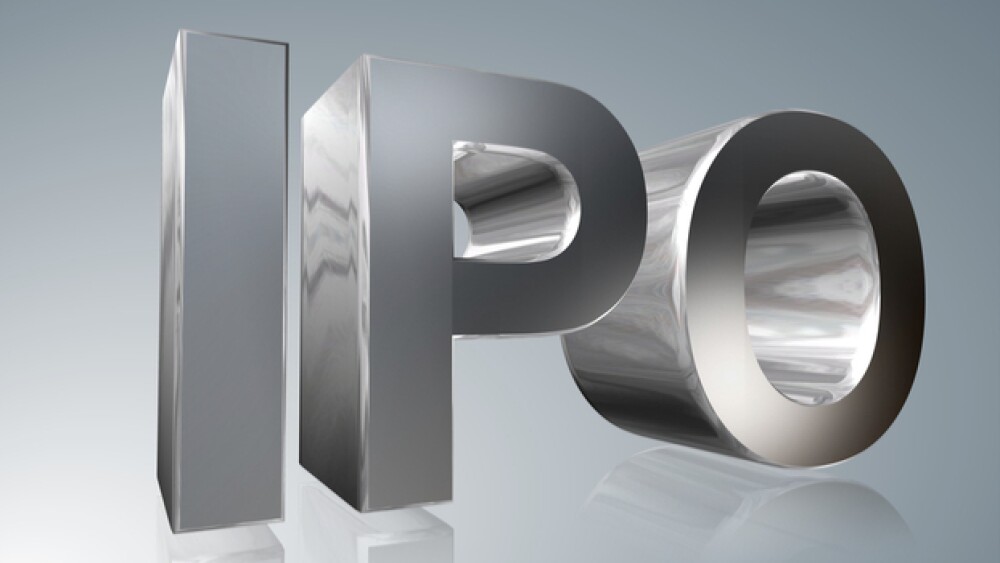Here’s a look at some of the biggest U.S. Nasdaq-based initial public offerings in 2019 and some of the more intriguing ones.
According to BioPharmCatalyst, there were about 68 biotech IPOs in 2019. Some of these outside the U.S., such as Hansoh Pharmaceutical Group’s June IPO on the Hong Kong Stock Exchange, was enormous—the Hansoh IPO raised $980.9 million.
Here’s a look at some of the biggest U.S. Nasdaq-based initial public offerings in 2019 and some of the more intriguing ones.
BridgeBio Pharma. Palo Alto-based BridgeBio Pharma announced its IPO price of $17 per share on June 26, 2019. It brought in $348.5 million, marking it as the biggest domestic biotech IPO of the year.
BridgeBio has multiple programs that act more or less autonomously via subsidiaries. They all share resources with the parent company and each other. As such, it has a pipeline of 16 programs, two of which are in Phase III testing. It focuses on rare diseases caused by a single gene defect.
On December 3, Origin Biosciences, one of its subsidiaries, initiated a rolling submission of a New Drug Application (NDA) with the U.S. Food and Drug Administration (FDA) for fosdenopterin to treat molybdenum cofactor deficiency (MoCD) Type A. It will be mostly supported by two ongoing clinical trials, a Phase II trial and a Phase II/III trial. BBP-870 has received Orphan Drug Designation in the U.S. and Europe, as well as Rare Pediatric Disease Designation and Breakthrough Therapy Designation in the U.S.
Adaptive Biotechnologies. On June 26, Adaptive Biotechnologies Corporation announced its IPO price of $20 per share, with expectations of raising $300 million. Shares immediately rocketed to $38 per share, up 90%. Shares moderated significantly over time, particularly after its August earnings report reported wider-than-expected losses.
Adaptive is developing an “immune medicine platform” to treat a broad range of diseases. It leverages the company’s proprietary technologies, computational biology, software and machine learning to read the genetic code of a patient’s immune system. On December 9, the company inked a multi-year, global collaboration deal with AbbVie to utilize the company’s next-generation sequencing (NGS)-based clonoSEQ Assay to assess minimal residual disease (MRD) status to venetoclax across AbbVie’s multiple myeloma clinical trials. Venetoclax is AbbVie’s selective B-cell lymphoma-2 (BCL-2) inhibitor.
Genmab. On July 18, Copenhagen, Denmark’s Genmab A/S raised $506 million with its IPO. The company’s ordinary shares are listed on the Nasdaq Copenhagen under the GEN symbol. It trades on the Nasdaq under the ticker symbol GMAB.
Genmab has two marketed drugs developed with partners. The first is Darzalex (daratumumab), a human CD38 monoclonal antibody approved by the FDA for multiple myeloma. The second is Arzerra (ofatumumab) for chronic lymphocytic leukemia. The company has a pipeline of five products in clinical development and about 20 proprietaries and partnered preclinical programs.
Gossamer Bio. Based in San Diego, Gossamer raised $276 million in its February IPO. The company got tangled up in the partial federal government shutdown in January. At that point, Gossamer indicated it planned to pursue an alternate path to the public markets that called for a share price fix locked in for 20 days. But shortly after their announcement, the government re-opened and Gossamer shifted to a traditional path.
Gossamer focuses on immunology, inflammation and oncology. On November 12, it entered into a clinical collaboration deal with Merck to evaluate the combination of Gossamer’s GB1275, a first-in-class oral CD11b modulator and Merck’s checkpoint inhibitor Keytruda in patients with selected advanced solid tumors.
Alector. San Francisco-based Alector raised about $176 million in its February IPO. Alector is focusing on Alzheimer’s disease and other neurological illnesses using an immunotherapy approach. On December 6, the company presented safety and biomarker data from its INVOKE Phase I trial of AL002 in healthy volunteers at the 12th Clinical Trials on Alzheimer’s Disease (CTAD) meeting. AL002 is a monoclonal antibody that enhances the activity of TREM2. It is being developed in collaboration with AbbVie. The data showed the therapy engaged its target and showed downstream activity in the CNS. Only a day earlier, the DA granted the drug Fast Track designation for frontotemporal dementia (FTD) carrying specific genetic mutations in the granulin gene. In September, Alector initiated its INFRONT Phase II trial of AL001 in FTD.





